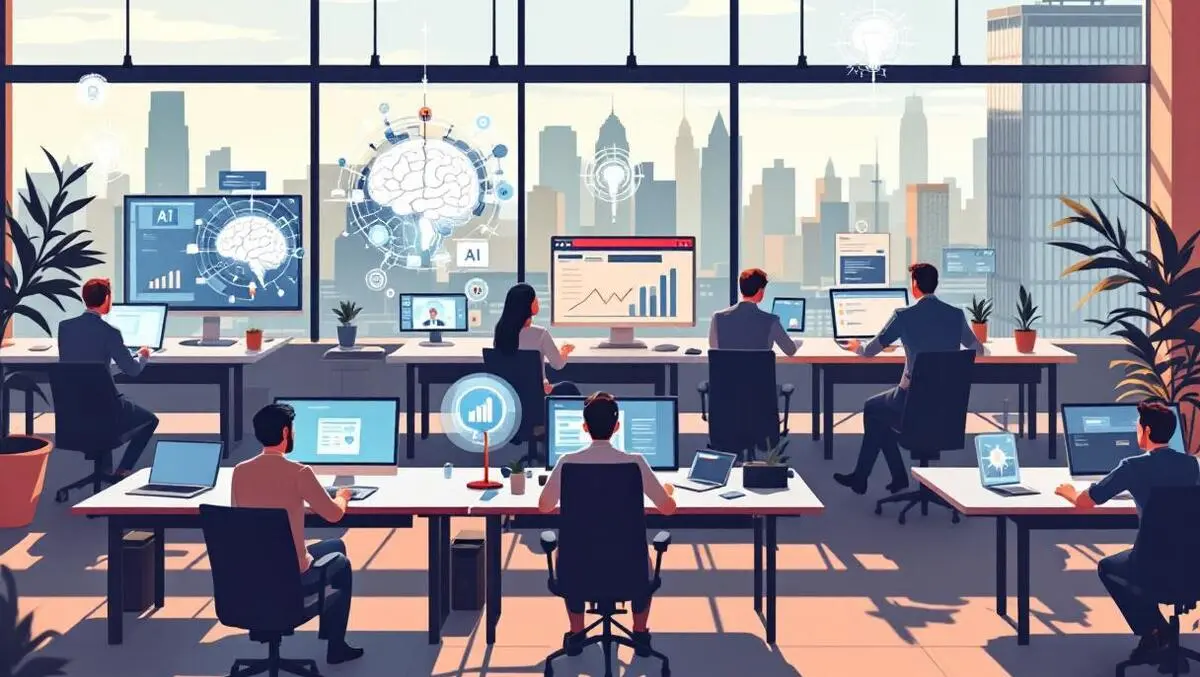Balancing AI and Authenticity in Modern Marketing

The marketing profession across Australia and New Zealand in 2025 is firmly focused on growth, adaptability, and innovation. With 65% of teams planning to expand their headcount this year, organisations are placing marketing at the centre of their business strategies—despite economic caution. This shift reflects the understanding that inbound marketing and brand engagement are not optional extras, but critical engines for business success.
As budgets and team sizes grow, so too does the pressure to deliver measurable results. Analytics, automation, and artificial intelligence (AI) are now indispensable tools, streamlining operations and offering predictive insights. Yet amid this digitisation, marketers are reminded of the value of human connection. A return to personalised experiences and authentic storytelling is shaping the future of brand engagement.
Learning and development remains key to staff retention, with 41% of employers investing in upskilling initiatives. Whether it's mastering new platforms, analysing performance data, or test-driving the latest technology in sector-specific roles, marketers are expected to be not just creative, but technically savvy and commercially aware.
Looking to the future, marketing teams must balance data with empathy, efficiency with experience, and innovation with trust—elements that define success in an increasingly competitive and connected landscape.
“You need people in marketing that are smart… but they must be technologists.”
In conversation with people2people Temporary Specialist Recruitment Team Leader Aiden Boast, Nicole Clarke, Co-Founder at Shazamme, and Karl Sullivan, Marketing Manager at Ingham Motor Group, explored the critical changes shaping marketing roles and recruitment.
Clarke confirmed that headcount growth remains a strong trend: “People do want to grow their marketing team. There is no question that marketing drives a business.” However, she cautioned that when economic uncertainty strikes, marketing budgets are often first on the chopping block. “You can’t be reactive—you need to keep driving that forward or you’ll get left behind.”
From Sullivan’s perspective, development and retention are intrinsically linked. “Learning and development is certainly a benefit that our team utilise,” he said, noting that this includes formal upskilling and hands-on product learning. “It involves understanding our products… and then utilising that in our promotions.”
Both experts stressed the importance of adaptability. Clarke pointed out the necessity for marketers to move beyond traditional tactics: “Old school marketing isn’t going to cut it like it used to,” she said. Technological literacy is no longer a bonus—it’s essential. “If you don’t understand technology, you won’t succeed.”
She also warned against over-reliance on AI-generated content. “You can tell when resumes are written by AI… people get caught out when they can’t back it up.” Human storytelling and the ability to connect remain central. “We’re going to see a full circle—back to humans connecting with humans,” she added.
Sullivan highlighted the impact of AI on operational efficiency. “It’s improving efficiencies—routine, low-impact tasks are freed up for strategic initiatives,” he explained. In the automotive sector, predictive analytics now inform campaigns by leveraging historical data on purchase cycles and maintenance patterns. This allows marketers to identify when customers are ready to upgrade, creating timely and relevant outreach.
Looking ahead to 2030, Clarke forecasted a seismic shift in how marketing is experienced. “It’s going to be about personalisation, video content, and immersive experiences,” she said. Technologies such as augmented reality glasses will reshape how products are marketed. “Imagine looking at a car and seeing its features and price in real time through your glasses,” she added. Social platforms will also change as monetisation alters how and where content is distributed.
Practical Takeaways for Marketing Employers in 2025
- Invest in marketers with strong analytical, adaptive, and technological skills—not just creativity.
- Maintain consistent marketing efforts, even during economic uncertainty, to stay competitive.
- Use AI to boost efficiency but rely on human creativity and insight to build authentic engagement.
- Provide upskilling and learning opportunities to retain top marketing talent.
- Prepare for a future defined by immersive experiences, personalised content, and new digital environments.
Grow your career and teams with people2people
In business since 2005 in Australia, NZ, and the United Kingdom, people2people is an award-winning recruitment agency with people at our heart. With over 12 offices, we specialise in accounting and finance, business support, education, executive, government, HR, legal, marketing and digital, property, sales, supply chain, and technology sectors. As the proud recipients of the 2025 RCSA and SEEK Outstanding Large Agency Awards, we are dedicated to helping businesses achieve success through a people-first approach.
Recent articles
Latest PR features
Copyright 2026, people2people Recruitment








